Soylent Green (1973)
[Note: The following review is of a non-Peary title; click here to read more.]
“Your dead one was a very important man.”
|
Synopsis: |
|
Genres, Themes, Actors, and Directors:
Review: Heston — “an actor who has had better last movie lines than any other star”, according to Stomp Tokyo’s reviewers — is appropriately stalwart as the hard-nosed detective who is determined to uncover the conspiracy behind Cotten’s death: but is never above taking advantage of the amenities (namely wildly overpriced foodstuff) he encounters during his investigation. Meanwhile, Robinson is a class-act in his final role as Heston’s roommate, a “Book” (so-named because he actually reads) who remembers long-gone days of bountiful flora and fauna on Earth; his delight at eating a piece of genuine beef is a joy to watch, and his final scene in the film (considered hokey by some) never fails to move me to tears. I’m also impressed by the simple yet effective way in which New York City is portrayed as drastically overpopulated, with Heston literally crawling over live bodies sprawled up and down stairwells, and crowd members serving as gruesomely effective “body armor” during assassination attempts. The film’s main flaw is its decidedly anti-feminist portrayal of women, who are (for the most part) either kerchief-clad personae non gratae, or beautiful and sexually compliant “furniture” (ouch!) for wealthy men — yet this gender-biased vision of the future is, sadly, perhaps not all that unrealistic, making Soylent Green all the more effective as a disturbing cautionary tale. Redeeming Qualities and Moments:
Must See? Categories
Links: |
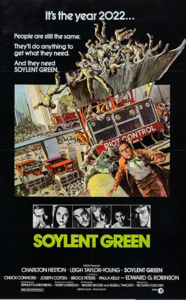
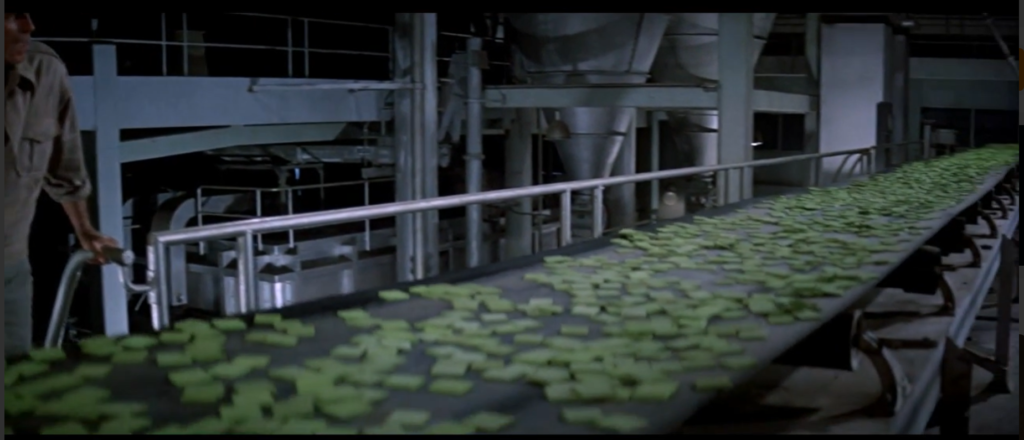
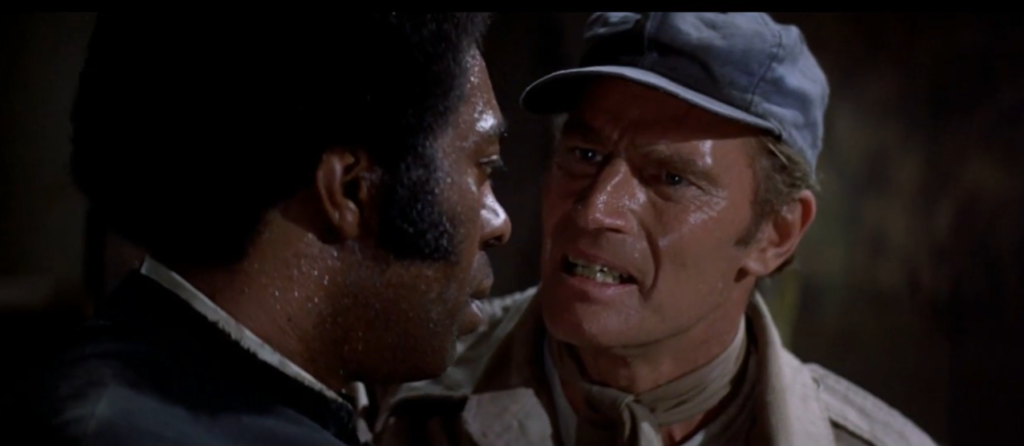
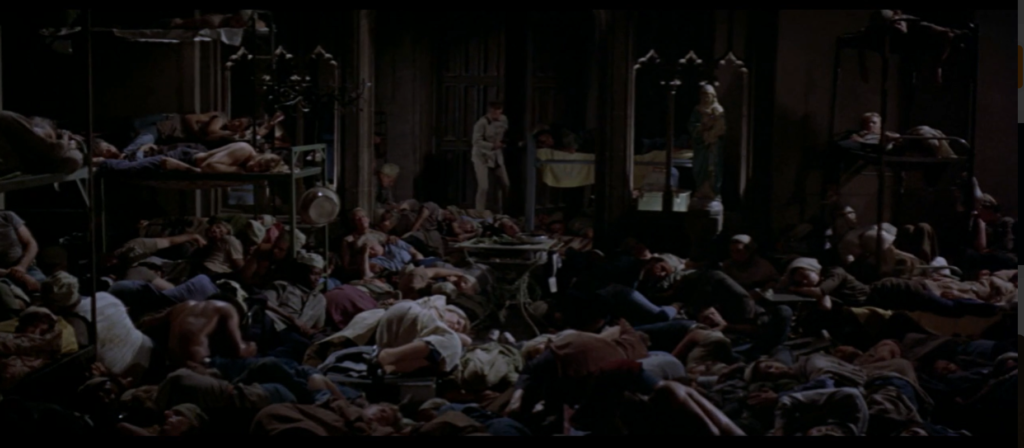
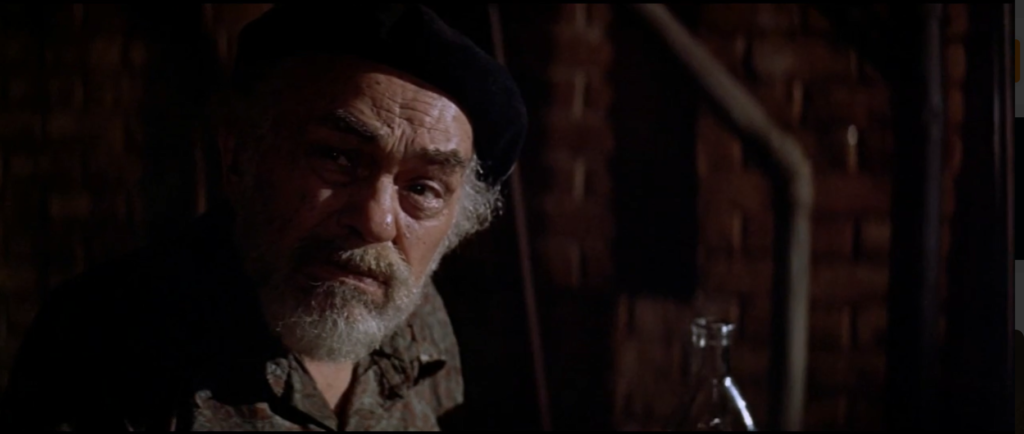
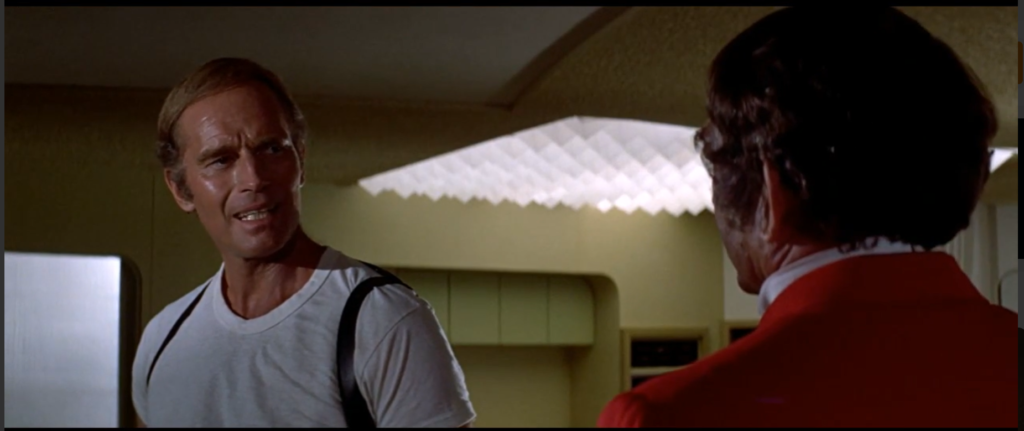
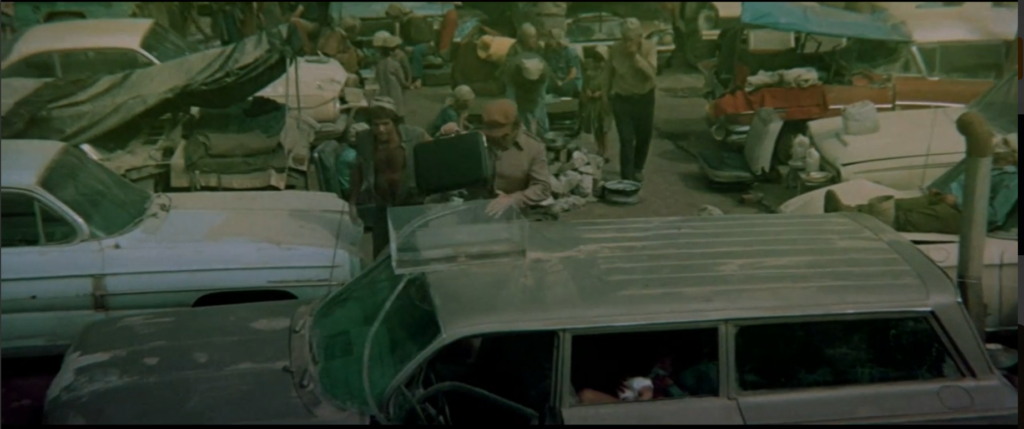
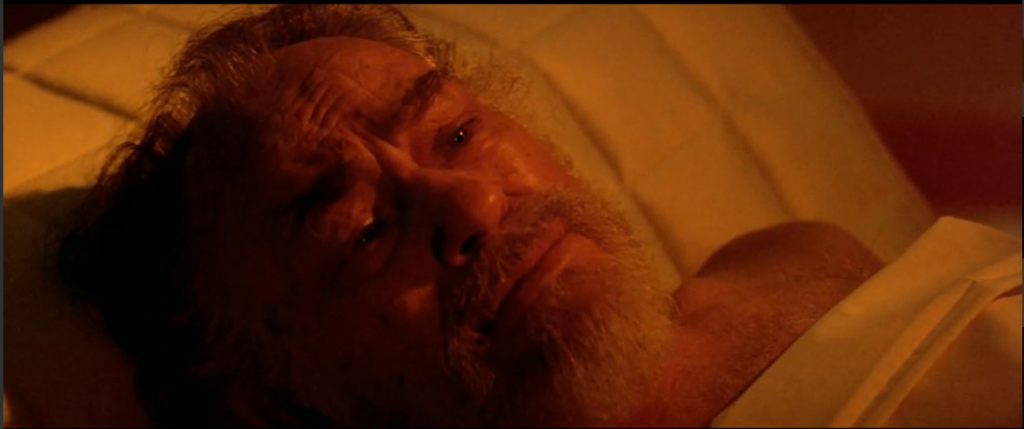
One thought on “Soylent Green (1973)”
⭐️⭐️⭐️⭐️
Classic dystopian scifi about an overpopulated future NYC based on Harry Harrison’s Make Room, Make Room (1966). It also has a murder mystery which is also a conspiracy.